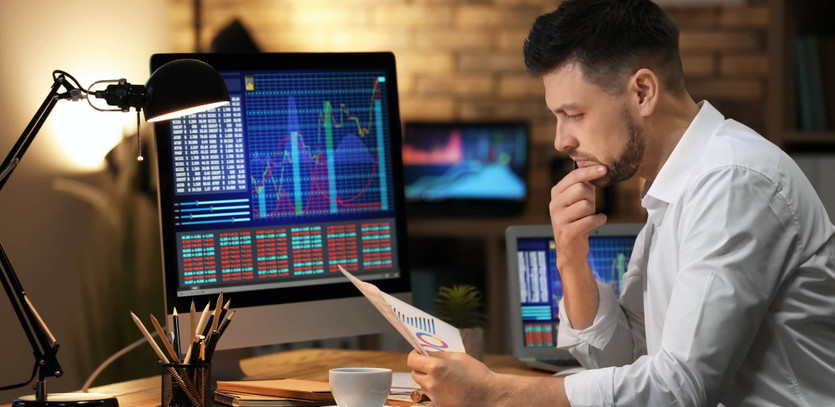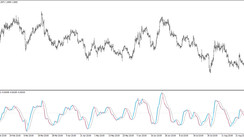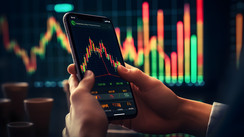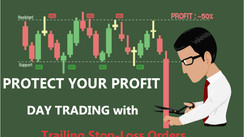The path from a novice trader to an expert is a journey of challenges, triumphs, and a continuous quest for improvement. Becoming a skilled trader requires knowledge, experience, and the ability to adapt to the dynamic landscape of financial markets.
This article delves into the stages of evolution that a trader undergoes from a novice to an expert.
The novice phase - Building the foundation
The journey begins with the novice phase, where aspiring traders seek knowledge and skill acquisition. Novice traders immerse themselves in the basics of trading, learning about market mechanics, trading platforms, and the different types of financial instruments.
During this phase, novice traders often experience excitement and uncertainty. The lure of potential profits is tempting, but the complexities of trading can be overwhelming. Novices may dabble in different trading strategies, experimenting with technical and fundamental analysis and absorbing information from various sources.
As they navigate the novice phase, traders gradually build a foundation of understanding. They learn about risk management, the importance of trading plans, and the psychological challenges trading entails. Both successes and setbacks mark this phase as novices begin to recognize the need for discipline and a structured approach.
The learning phase - Expanding horizons
In the learning phase, traders delve deeper into the intricacies of trading. They expand their knowledge by studying advanced trading strategies, delving into technical indicators, and understanding the nuances of different asset classes. This phase is characterized by a thirst for in-depth knowledge and a commitment to continuous learning.
Traders often seek out educational resources, attend seminars, and read books written by seasoned professionals. They may focus on mastering specific trading techniques, such as day trading, swing trading, or options trading. The learning phase is also when traders develop their preferred style, aligning it with their strengths and preferences.
While the learning phase is marked by significant progress, it has challenges. Traders may encounter self-doubt as they grapple with complex concepts and strategies. However, their dedication to expanding their horizons and honing their skills propels them forward on their journey to becoming skilled traders.
The adaptation phase - Navigating market realities
The adaptation phase is a pivotal stage where traders transition from theory to practice, navigating the realities of live markets. This phase is marked by applying knowledge gained in the learning phase to real-world trading scenarios. Traders gain valuable experience by executing trades, managing positions, and responding to market fluctuations.4
During the adaptation phase, forex prop firm traders encounter emotional and psychological challenges. The thrill of wins and the sting of losses become palpable, and traders learn to manage their emotions while making decisions under pressure. Risk management is essential in this phase, as traders recognize the need to protect their capital and avoid significant losses.
Traders also learn the importance of adaptability during the adaptation phase. Markets are dynamic, subject to trends, news, and investor sentiment shifts. Successful traders in this phase refine their strategies, adjust to changing market conditions, and recognize that flexibility is a vital attribute of a skilled trader.
The expert phase - Mastery and consistency
The expert phase represents the culmination of a trader's journey, marked by a high level of mastery, consistency, and a deep understanding of market dynamics. Traders who reach this phase have honed their skills, developed a refined trading approach, and internalized the lessons learned from the previous stages.
In the expert phase, traders have a well-defined trading plan that aligns with their risk tolerance, trading style, and market expertise. They can identify high-probability trade setups, execute trades with precision, and confidently manage their positions. The expert phase is characterized by calmness and control, even during market turbulence.
Skilled traders in the expert phase have also mastered the psychological aspects of trading. They clearly understand their emotions, manage stress effectively, and maintain discipline in adhering to their trading plan. Their decision-making process is informed by experience, a deep understanding of market psychology, and an acute awareness of risk-reward dynamics.
The mentorship phase - Sharing knowledge and impacting others
The journey from novice to expert often leads skilled traders to the mentorship phase, where they pay forward their knowledge and expertise to aspiring traders. This phase is characterized by a desire to share insights, guide others, and contribute to the growth of the trading community.
Skilled traders in the mentorship phase become mentors, educators, and advocates for responsible trading practices. They may write books, create online courses, or host seminars to help novice traders navigate the complexities of the markets. By sharing their experiences, strategies, and lessons learned, these mentors empower others to embark on their journeys with a solid foundation.
All in all
The journey from a novice to an expert trader is transformative, marked by continuous growth, adaptation, and a commitment to improvement. While each trader's journey is unique, the stages of evolution are a common thread. Becoming a skilled trader requires dedication, perseverance, and the recognition that success is a product of consistent effort, continuous learning, and the ability to adapt to the ever-changing landscape of financial markets.
As you embark on your journey, remember that becoming a skilled trader is not an end goal; it's an ongoing process of evolution that leads to expertise and mastery over time.





